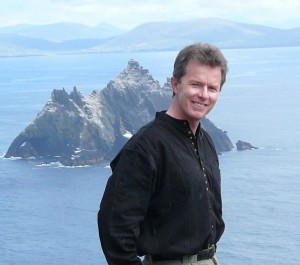Visiting Scholars
2014-2015 Visiting Scholar: David Schmidtz
The Alpha of North Carolina Chapter is pleased to welcome Dr. David Schmidtz as the 2014-2015 Phi Beta Kappa Visiting Scholar. Dr. Schmidtz is Kendrick Professor of Philosophy at the University of Arizona. He also has appointments in economics and in the McGuire Center for Entrepreneurship, and is founding director of Arizona’s Center for Philosophy of Freedom. For the fall of 2014, he was named the John Stuart Mill Professor at the University of Hamburg.
named the John Stuart Mill Professor at the University of Hamburg.
He works in ethics, environmental philosophy, and rational choice. In his main field, political philosophy, the University of Arizona is ranked as the #1 graduate program in the world. His students have published articles in Journal of Philosophy and Ethics. Oxford and Princeton University Presses have published their books. He is editor-in-chief of Social Philosophy and Policy, published by Cambridge University Press, which has the largest circulation among philosophy journals in the Anglo-American world. He is the author of Rational Choice and Moral Agency (Princeton University Press); Elements of Justice (Cambridge University Press); and Person, Polis, Planet (Oxford University Press); the coauthor of Social Welfare and Individual Responsibility; Brief History of Liberty; and Markets in Education (forthcoming); and coeditor of Environmental Ethics: What Really Matters, What Really Works.
Public Lectures
What Teachers Owe Students
Wednesday, February 18
6:00 p.m. – 7:30 p.m.
Kresge Foundation Common Room (Room 039), Graham Memorial
UNC Campus
One variable that affects how well a school can do is how well funded that school is. Yet, no amount of money can guarantee success. Well-funded operations often fail to deliver. Success goes with finding and rewarding inspired and inspiring teachers, and not rewarding those who have given up on excellence and now are simply showing up to collect their paychecks. Rewarding the corrupt is pervasively corrosive. Uninspired teachers drag down not only their own students but fellow teachers, too. Rewarding uninspired teachers is demoralizing for everyone who wants to be part of an organization that stands for and is committed to excellence.
The lecture is free and open to the public. Pizza and discussion to follow.
The Pretense of Consent
Thursday, February 19
12:30 p.m. – 1:30 p.m.
University Room, Hyde Hall
UNC Campus
What terms of engagement are appropriate for people who don’t even agree on what terms of engagement are appropriate? The question is not cute. It’s a real question at heart of human condition. So many theories represent political authority as grounded in consent, which leads them to define consent in insufferably attenuated and abstract ways. By contrast, if we start with actual politics—from the idea that disagreement is an inevitably central feature of our lives together—then the objective becomes to make it safe to live among people with whom we fundamentally disagree. On this view, the point of politics is not to reach consensus so much as to create realms where people are not a threat to each other, and in which minding one’s own business is a concretely available and genuinely palatable option.
This event is free and open to all. Lunch will be provided, and registration is kindly required. CLICK HERE TO REGISTER.
The above lectures are co-sponsored by Phi Beta Kappa, the UNC Philosophy, Politics, and Economics Program, and the Parr Center for Ethics.
About the Phi Beta Kappa Visiting Scholars Program
Since 1956, the Phi Beta Kappa Society’s Visiting Scholar Program has been offering undergraduates the opportunity to spend time with some of America’s most distinguished scholars. The purpose of the program is to contribute to the intellectual life of the institution by making possible an exchange of ideas between the Visiting Scholars and the resident faculty and students. The 13 men and women participating during 2014-2015 will visit 100 colleges and universities with chapters of Phi Beta Kappa, spending two days on each campus and taking full part in the academic life of the institution. They will meet informally with students and faculty members, participate in classroom discussions and seminars, and give a public lecture open to the entire academic community. Now entering its 59th year, the Visiting Scholar Program has sent 623 Scholars on 5,092 two-day visits.
Additional information about the Visiting Scholar Program can be found on Phi Beta Kappa’s website (www.pbk.org).
